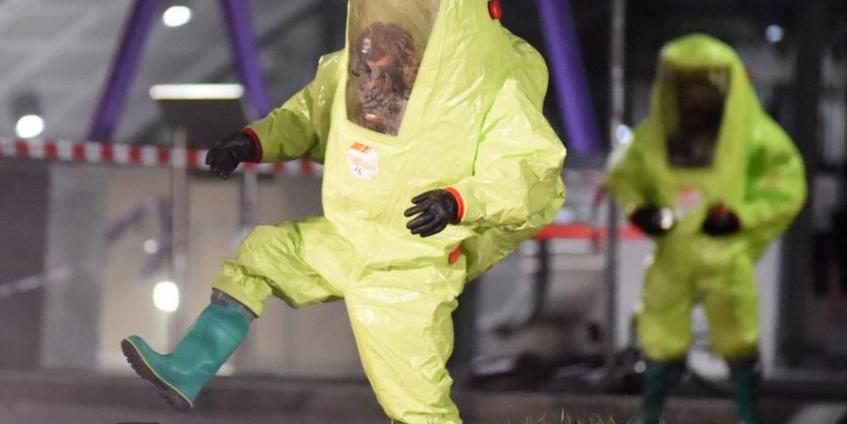The Pentagon’s research arm wants a better suit for those responding to chemical and biological warfare attacks. The Defense Advanced Research Projects Agency, or DARPA, says it wants a less clumsy suit that does an even better job of protecting soldiers, first responders, and researchers from deadly biological and chemical weapons. The suit could even draw inspiration from nature, including shark skin.
Current chemical and biological warfare suits are big and bulky. DARPA’s notice cites the U.S. government’s response to Ebola outbreaks in Africa in 2014 and 2017, when it took 6 hours of an 8-hour work day to put on, take off, and decontaminate existing suits. That, the agency pointed out, left only 2 hours for the wearer to spend time with patients.
The agency wants a new suit that does two things. The first is that the suit should prevent direct contact between the wearer and the microscopic baddies, forming a physical barrier. The second is that the suit should neutralize agents that penetrate the barrier and reach the skin, eyes, mouth, and nose. The suit should neutralize at least two chemical or biological threats simultaneously.


